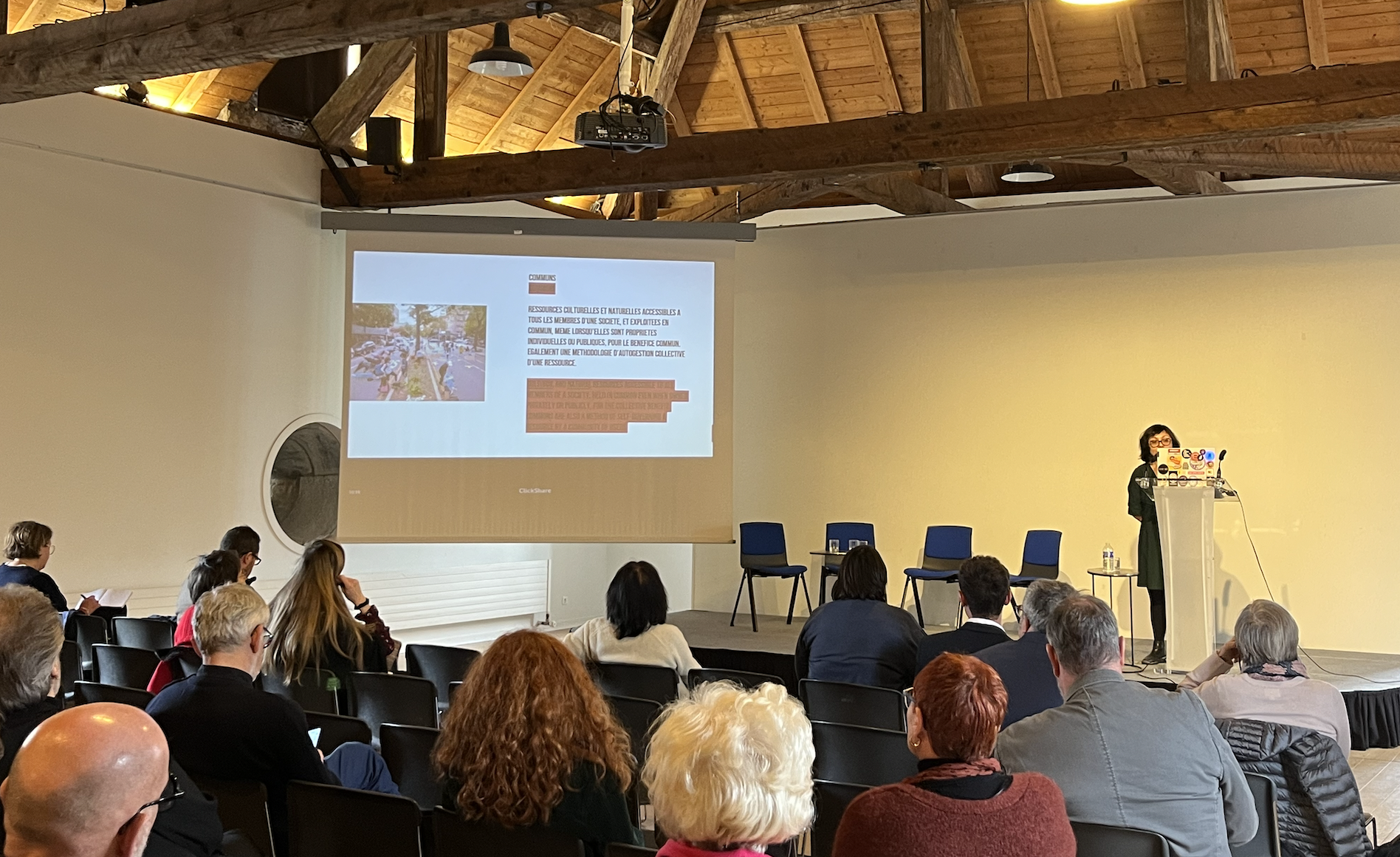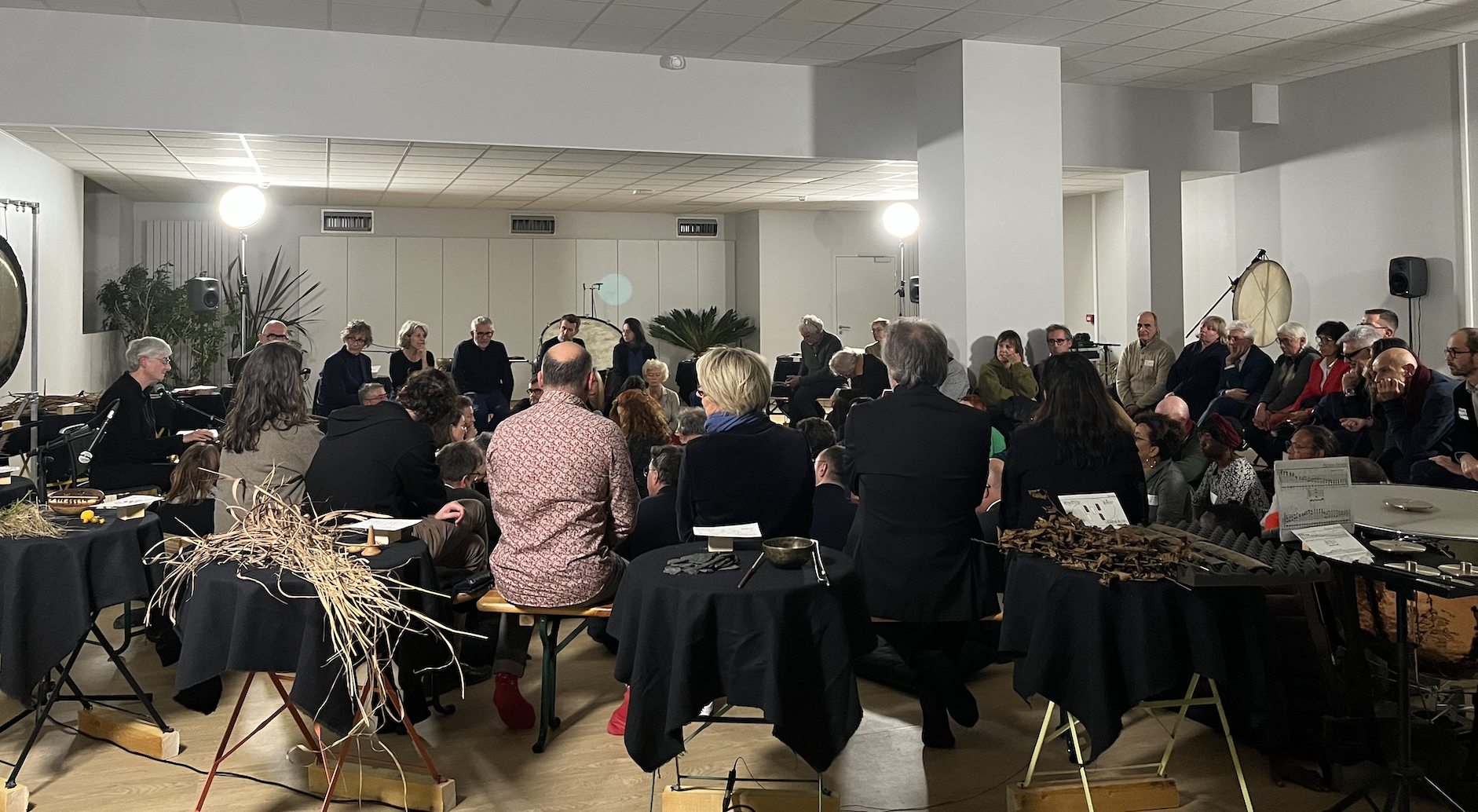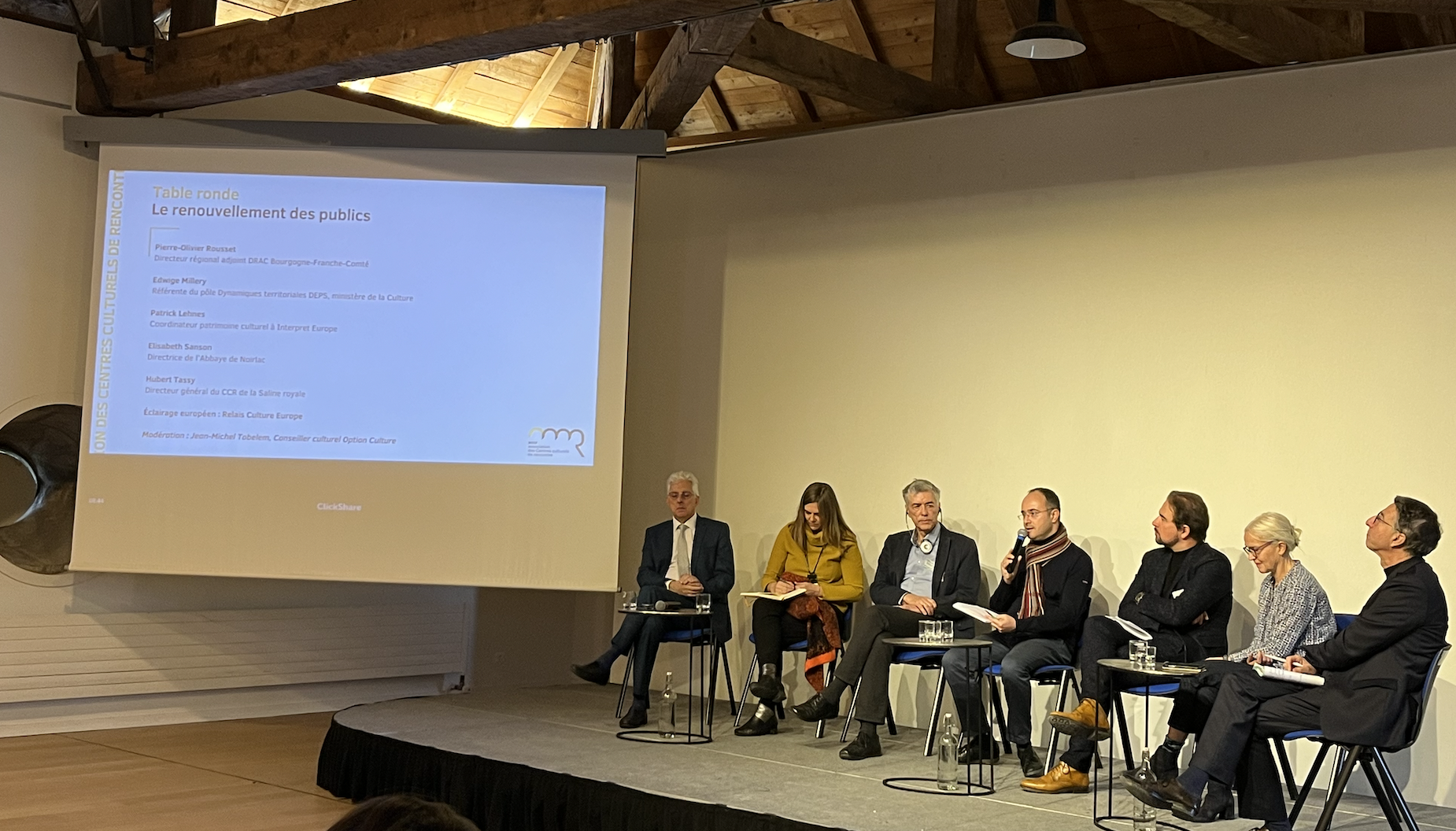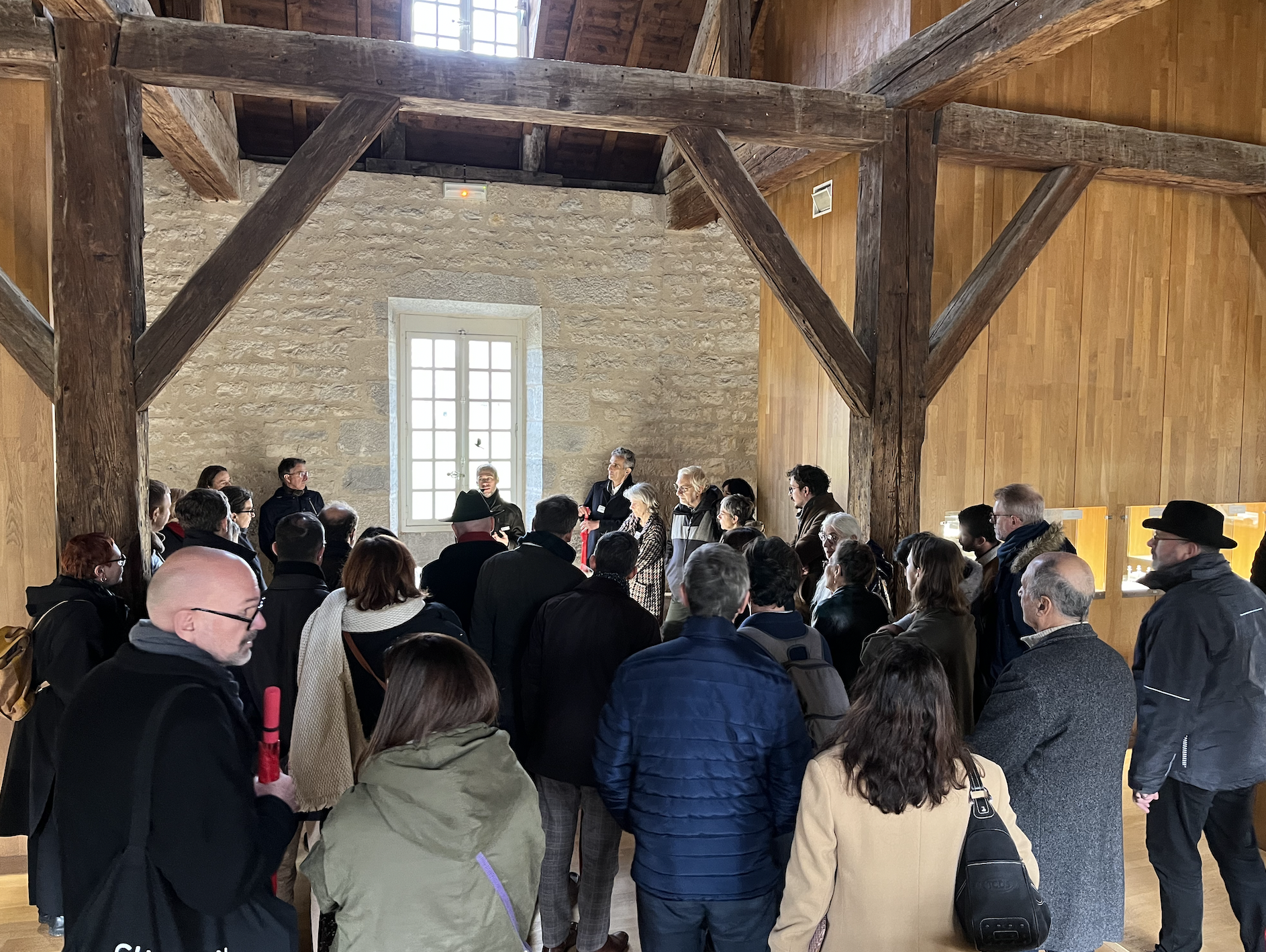On 16, 17 and 18 November 2023, the European conference on "Heritage and creation in the face of contemporary transitions" took place at the Saline Royale d'Arc-et-Senans. These three days of intense debate provided an opportunity to examine culture in the light of major contemporary challenges, including the need to rethink the relationship between cultural institutions and their audiences.
Rather than talking about renewing audiences per se, we should be looking at renewing the relationship we have with them. This makes it possible to rethink the role of the institution, which then becomes a trusted third party listening to audiences and relaying societal concerns.
The CCR network is questioning the vocabulary of "cultural offer" or "cultural demand", which implies a product to be desired or sold, in favour of the question of what makes for culture or a good life together in a rural area. The ACCR are working to shift this top-down paradigm towards a more inclusive one that incorporates the contribution of local residents (those who live in the area, those who bring it to life, those who experience it by travelling through it, staying there, working there, etc.) and reflects the diversity of their cultures. In short, one of the key issues is to work towards a transition in relational modes.
/The question of representativeness
While the discussions, and in particular the presentation by Edwige Millery, research officer and coordinator of the "pôle Dynamiques territoriales au sein du département des études, de la prospective, des statistiques et de la documentation (DEPS)" at the French Ministry of Culture, mentioned encouraging figures for attendance at cultural institutions, practical experience in the field reveals the major inequalities in access that exist.
According to figures from the "Listening to Visitors" study, a DEPS survey of heritage sites and establishments, more than 50% of visitors are women, 60% are in employment, and the average age of a visitor is 37, a figure that is tending to get younger thanks in particular to favourable pricing policies - a third are free - and new mediation initiatives. Otherwise, visitor profiles remain relatively identical. This raises the question of whether our audiences are changing at all.
On the one hand, knowledge of the public is a source of many questions based on socio-demographic data. On the other hand, institutions also have a role to play in the way they present themselves, the way they address audiences and the way they prioritise disciplines.
It is therefore a question of rethinking the imaginations that we generate in order to allow a renewed approach to audiences and to limit as far as possible the distance that is being established between certain cultural and heritage institutions and a significant fringe of the population. Thinking of ourselves and being perceived as an open and welcoming place means representing minorities in the governance and leadership of our structures, as well as in our programming.
/Listening and observation at the heart of the project
To fulfil this commitment, cultural institutions need to work on the links they can forge with local people. This requires a capacity for observation, listening and knowledge of the audience, in order to ask who the site is and should be addressing, a key element that gives meaning to any project.
The Centres culturels de rencontre are precisely the kind of inventive spaces that promote a plurality of narratives, encouraging rapid encounters due, among other things, to their location in rural areas and the cohabitation of artists in residence, cultural professionals and visitors. Noirlac Abbey is a witness to this attentiveness to others, and is developing an artistic and cultural project based on listening and dialogue, highlighting the rural richness of its territory.
The Trans Europe Halles network, a network of cultural and industrial wastelands created in the early 1970s and represented at the Europeans meetings by Tiffany Fukuma, its general manager, is also part of this dynamic, supporting and accompanying communities in their social projects according to their specific needs.
/Developing an emotional approach
In this sense, it's a question of designing programming for these identified audiences, according to their aspirations, and not just what we think should be shown. With their strong local roots and their focus on hospitality, CCRs offer a more emotional and sensitive approach to heritage that makes sense to local people and reinforces their feelings of belonging, recognition and pride.
This creative, local approach to heritage and links with the public is not at odds with European exploration. On the contrary, cross-fertilising professions, commitments and practices is a way of drawing inspiration and evolving. National and international influence can go hand in hand with bringing people together locally.
Thanks to the spaces for dialogue created and preserved by the CCR and Trans Europe Halles, heritage becomes a place and a pretext for sociability and encounters, helping to rehumanise relationships. It's a whole world of practices around the visit or, more broadly, experimentation with heritage that can nurture living together.




